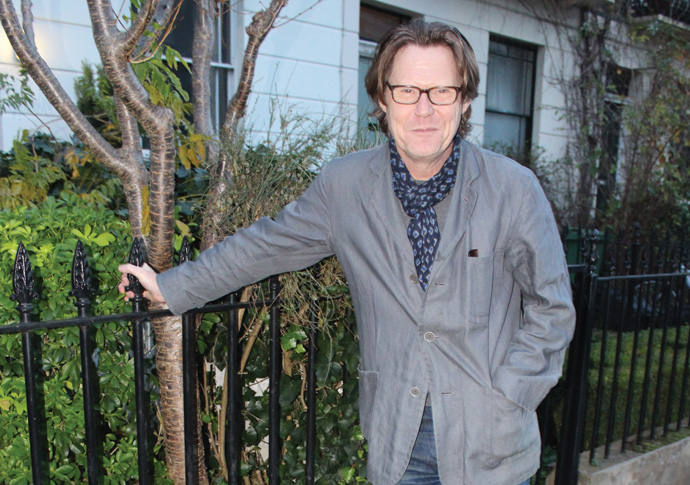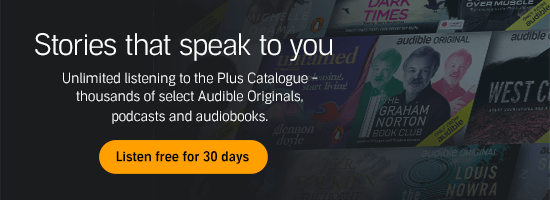Robert Elms, the gigs that formed him… and his fears for their future
His new book is called 'Live!: Why We Go Out'
Thursday, 16th November 2023 — By Dan Carrier

Robert Elms, author of Live! Why We Go Out
LOCKED down and fretting about the health of the now-silent venues that have formed the landscape of his life, broadcaster Robert Elms could find some solace from the grim Covid-induced news in his extensive record collection.
Working his way through the albums on his shelves, he was reminded of old favourites and discovered new elements he had previously overlooked or perhaps forgotten.
It set him thinking about his life in relation to the music that has accompanied him over the decades, and in his new book, Live! Why We Go Out, he mixes memoir with a stage-left take on probably the UK’s best export and best example of soft power – our music industry.
“I still go to gigs, sometimes two or three times a week,” he says. “Like following QPR and wearing whistles and well-polished shoes, it is a big sense of what I do and who I am.”
Robert attempts to chronicle a life in live music, sifting through moments, venues, bands to ask himself what makes music performed in front of you such a powerful, emotional experience.
He also uses his unique position as a music journalist and broadcaster to consider trends and movements.
On the one hand, he laments the changes in London that have decimated the scene he once knew and identifies as a crucial incubator in the entertainment economy. Likening youth culture to bacteria in a petri dish – “it thrives in warm, dark places” – he offers the usual reasons: gentrification; the closure of pubs; licensing laws; grumpy neighbours who don’t realise moving in next door to a venue doesn’t allow you to then wish it away; and even Crossrail, as to why there isn’t a dive with an undiscovered band on every back street.
He plays a game of nostalgia, casting his mind back to his teenage years aged between 15 and 18 and gigs he went to. They read like a roll call of seminal moments: The Clash at the Finsbury Park Rainbow, Dr Feelgood at the Hope and Anchor (or was it the Tally Ho, he asks?), Eddie and the Hot Rods at the Marquee. It means a book of a music lovers recollections is littered with stories of watching Madonna sing in a club in New York before she became famous, crying off with an injury when invited to join Bob Marley and the Wailers in a football game, and watching the Jackson Five in full flow at a venue called The Empire Pool, a moment that stands out for him: “ABC as perfect as anything I had witnessed up until that point in my little life,” he recalls.
“Three minutes of divine or maybe diabolical delirium. That was the moment it all began.”
As well as the recollections of what made a particular gig memorable, he offers a consideration of how best music creation can be protected, encouraged and enjoyed. He talks of both the economic impact of our creative industries but also of the harder-to-define contribution watching others play instruments has to our wellbeing.
He likens the changes to going to a football match with the experience of going to a gig.
“The people’s game was a predominantly working-class sport, where kids could easily afford to watch their local team, stand on huge open terraces, join in the singing and the surges and feel the life-affirming thrill of commitment, community, and the craic,” he says. “It was rough and ready and cheap and thrilling. Not anymore.”
He brings up that classic line from anyone over 50 – how he could once afford to follow QPR across the country, have a pie and a programme too, off the back of his wages earned as a paperboy. Not any more.
“The corporatisation and commercialisation of football has totally changed the experience of being a fan and denied that experience almost entirely to working-class kids,” he states. “And I fear the same is happening to music.”
He calls the cost of watching live acts today often “horrific”, stating that the £700 to see Roxy Music at the O2 was particularly obscene as “Bryan Ferry can’t even dance.”
What does this mean for the organic music industry, an ill-defined blob of a movement that relies on artistic expression being recognised and then moulded into some form of commercially viable shape, to pay for recording and touring and put food on the table of those involved?
“The smaller, cheaper grittier and to my mind better venues have been disappearing at an alarming rate, and with them the bands to fill them,” he adds.
Soho, once awash with such places, is now “bereft”, with eating at a swanky restaurants now the going-out choice of many in this neighbourhood dedicated to nightlife and entertainment.
“As the audience shrinks and the venues close, that means there are fewer and fewer groups coming through,” he adds.
“The big-name acts are pretty much the same as they were 10, 20 and even 40 years ago. The Stones and The Who still topping the bill is rock and roll bed blocking.”
Music is often married to a sense of rebellious belonging to a small clan of like-minded individuals. But when the promoters get pound signs in their eyes, it is that fan who loses out.
“I am happy to watch music in comfort at my age, but even I do not want to feel like a night out is part of some corporate machine,” he writes.
“London is still the greatest, most musical city on earth, and I have great faith in its innate creativity, but I do fear for its rock and roll soul.”
Robert’s credentials are such that he can liberally litter anecdotes about a spat with Paul Weller, how he was there at the start of the New Romantic movement and was responsible for coming up with the name of Holloway brothers Martin and Gary Kemp’s band, Spandau Ballet, to original suggestions that Londoner’s of a certain age might walk with a certain gait because of the influence of Reggae music in the 1970s and 1980s.
Robert gives the reader an “Access All Areas” pass to join him on a musical voyage across a city where every musical language from every culture across the globe is represented. And despite the pressures of profit-driven anti-culture trying to find ways squeeze your wages out of you, Robert finds much to celebrate in a joyous overture to the soundtrack of our lives.
• Live! Why We Go Out. By Robert Elms. Unbound, £18.99

